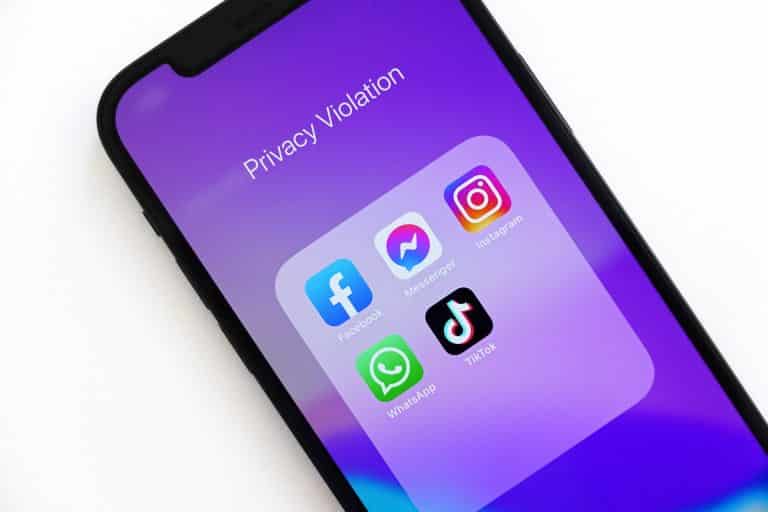A federal appeals court ruled that the Center’s new IT rule requiring messaging apps like WhatsApp to “trace” the first source of information was legal, saying that the law empowers it to expect that these companies create safe cyberspace and counter illegal content either themselves or assist law enforcement agencies.
When the Center said that it was empowered to formulate Rule 4(2) of Intermediary Rules under Section 87 of the Information Technology Act, it meant that an important social media intermediary had to be identified to curb fake news and criminal offenses affecting national security and public order, as well as crimes affecting women and children.
According to the Centre’s affidavit, platforms that “monetize users’ information for business/commercial objectives are not legally allowed to argue that it safeguards privacy” in response to WhatsApp’s appeal to the law.
According to the affidavit filed by the Ministry of Electronics and Information Technology, “Petitioners (WhatsApp and Facebook), being multi-billion dollar enterprises, almost exclusively based on mining, owning and storing the private data of natural persons worldwide and then monetizing the same, cannot claim any representative privacy right on behalf of natural persons using the platform.”
Facebook and third-party organizations for business/commercial purposes (WhatsApp’s privacy policy of 2016 and its 2021 amendment) acquire personal information from users and share it with WhatsApp. Facebook should be held accountable for its services and data management procedures, according to regulators from around the world,” it continued.
If a platform does not have the means to trace the “first originator” without breaking the encryption, it is the platform that “ought to develop such mechanism” in larger public duty, according to the Center. The Center also said technical difficulties cannot be an excuse for refusing compliance with the law of the land.
Platforms breaching end-to-end encryption is not something that the Rule considers. According to the Rule, only platforms can offer information about the initial creator via any methods or mechanisms made accessible to them by the platform itself. The affidavit said that if the platform did not already have these mechanisms in place, it should do so in light of the platform’s broad use and greater public duty.
For example, if an intermediary is unable to identify or stop illegal activity on its platform, that suggests that there is a flaw in platform design that has to be fixed before laws can be changed. Because of ‘technical problems,’ a person or organization cannot refuse to follow the law of the nation.
WhatsApp’s new privacy regulation was challenged in court in August by a group led by Chief Justice DN Patel, who said it violated people’s right to privacy and was thus illegal.
Similar resistance has been waged by WhatsApp’s parent firm, Facebook.
WhatsApp said in court that the traceability rule required it to “break end-to-end encryption,” infringing on the constitutional rights to privacy and free expression of the hundreds of millions of people who rely on WhatsApp to communicate quietly and securely.
The petition by WhatsApp is not maintainable as a challenge to the constitutionality of any Indian legislation is not maintainable on behalf of a foreign commercial enterprise, according to the Centre’s statement,
According to the document, Rule 4(2) “embodies competing Indian citizen rights” and strives to protect the “rights of vulnerable citizens within the internet who can be or are victims of cyber-crime.”.
To make sure the regulation isn’t abused or activated when alternative, less invasive methods may successfully identify the information’s origins, the Center said there are checks and balances in place.
Following the rule, viral content connected to heinous crimes must identify the source to prevent the identification of all users or residents.
As stated in the affidavit: “If it is not implemented, law enforcement authorities would have difficulty in establishing the origin of bogus communications and such messages may seep into other platforms, upsetting peace and harmony in society and leading to further public order concerns.”
WhatsApp would lose its ‘intermediary protection,’ according to the Center, but that “does not mean that WhatsApp would be held culpable and its administrators would be legally accountable” if any court procedure used any message from the platform as evidence.
There may be ‘Contributory Negligence,’ as well as ‘Vicarious Liability on WhatsApp and its officials,’ in the courts (under Section 85). Such responsibilities will only materialize if and when a case arises in which WhatsApp is mentioned as an entity whose involvement in the commission of a crime has been properly shown,” the statement continued.
For example, it noted that in a case involving child sexual assault, the Supreme Court had ordered the Central government “to take all means required to identify those who generate and spread electronic material.”

